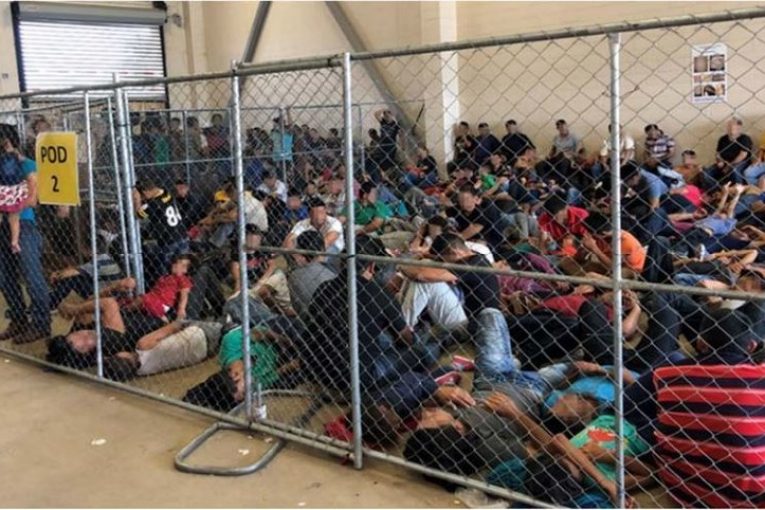

By Alexander Ramirez and Hannah Adams
SACRAMENTO, CA – In progressive actions to support and protect California’s diverse communities, Gov. Gavin Newsom has signed a series of bills and taken other executive actions to expand the California immigration system’s ability to do just that.
Among these bills is new legislation that changes the terminology used in California code that addresses undocumented people in California as what is considered a derogatory term: “alien.”
Authored by Assemblymember Luz Rivas (D-Arleta), AB 1096 will replace the word “alien” in California legislation with vernacular that is more accepting and less deprecating to people not born in the U.S., such as “immigrant” or “undocumented person.”
The term “alien” has been used by the federal government to identify people not born in the U.S. since 1798 and in California since 1937, and although it has largely been replaced by other terms since around 2015, there is still a stigma with the term.
In the 1990s, “alien” was used as “a political dog whistle” to direct hate speech to undocumented people.
“As the nation’s most diverse state, we are stronger and more vibrant because of our immigrant communities. This important legislation removes the word ‘alien,’ which is not only an offensive term for a human being but for far too long has fueled a divisive and hurtful narrative. By changing this term, we are ensuring California’s laws reflect our state’s values,” said Gov. Newsom.
According to the Center for Migration Studies, California is home to over 10 million immigrants, and about 22 percent of those immigrants are  undocumented.
undocumented.
Newsom has also granted $5.2 billion to help low-income renters cover their back rent and their rent for several months into the future, another $2 billion for overdue utility bills, and undocumented families that qualified received $1,000 of stimulus money as part of the Golden State Stimulus.
This new series of bills serves to further Newsom’s initiative to serve and support all of California’s population, including the immigrant communities spread throughout the state.
Even in the midst of the COVID-19 pandemic, COVID testing was free for all people regardless of status and was made readily available in the low-income communities that were more susceptible to the virus.
California also created the Housing for the Harvest framework that provided food and agriculture workers access to shelter and quarantine options and eventually in-home quarantine and financial assistance. This was on top of disaster relief that reached 150,000 people statewide.
Other than AB 1096 and the previous COVID relief, California has also offered more educational opportunities for immigrants, expanded health care and public benefits, expanded economic mobility, and other public protections.
Other legislative measures signed by Newsom include:
– AB 263, authored by Assemblymember Dr. Joaquin Arambula (D-Fresno), that requires private detention facilities (including those who detain and house immigrants in California) to follow public health orders that are authorized on a local or state level. Additionally, the private operators of said facilities must abide by Cal/OSHA workplace regulations.
– AB 600, which Arambula also authored, extends the definition of nationality to include immigration status. As a result, any crimes that are committed against an individual based on a perception of the individual’s immigration status will now be considered hate crimes.
– SB 334, authored by Senator María Elena Durazo (D-Los Angeles), mandates detention facilities must guarantee basic health and safety standards for detained persons in these establishments. And they must keep “insurance coverage related to medical professional liability and liability for civil rights violations” at minimal levels.
– AB 1140, directed towards benefiting the children within state-licensed facilities, is authored by Assemblymember Robert Rivas (D-Hollister) and certifies that these children (including unaccompanied undocumented minors) will be under the administrative influence of the California Foster Care Ombudsperson’s Office. By extension, these children will also be able to take advantage of all of the resources and protections that are granted under state law.
– SB 714, written by Senator Anna Caballero (D-Salinas), alters the California election code to permit “aspiring citizens,” i.e. DREAMers to participate and hold official roles in county central committees.


No wonder are borders are getting overrun. There’s a lot of freebies in store once you get here.
I don’t have a problem with dropping he word “alien”, as such. But using the word “immigrant” instead does not distinguish between those that went through the legal process to come to the US and those that did not, and is therefore ambiguous.
You raise a important point, Alan M… big diff between someone who entered on a valid visa/work permit, found a job, started a family and is one year from completing the citizenship process, and someone who skirted all of those… and, the true refugees/asylum-seekers are different from those ‘just’ wanting a better standard of living.
Lumping all together under one term may be politically correct for some, but an actual degradation for the status of others who are trying to follow reasonable protocols.
I am also sympathetic to those who ‘illegally’/undocumented entered the US but by on-going actions, and intent, want to make things right by contributing to their communities.
This tends towards ‘rocket-science’, but we should strive towards being humane, rather than just human. Not ‘lax’, but rather, purposeful. Based on values, not political and/or xenophobic sound bites…